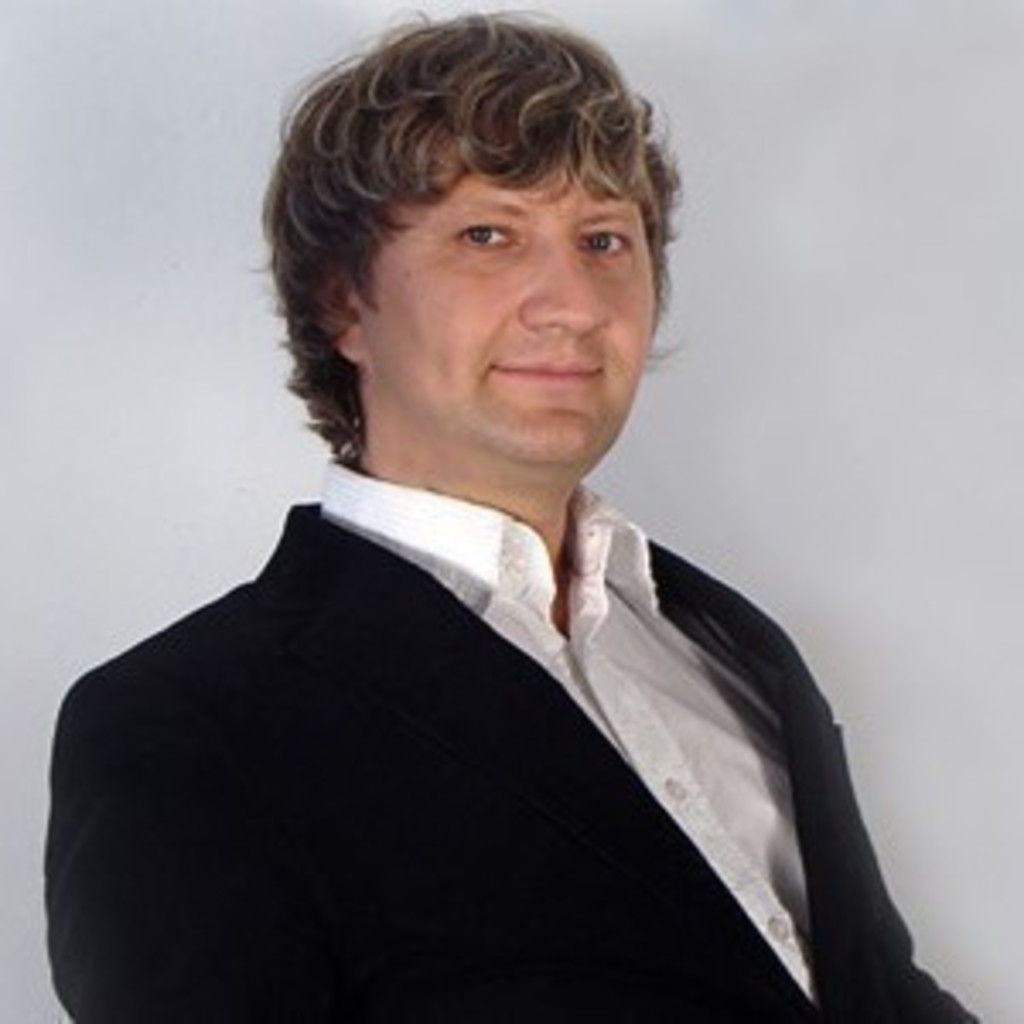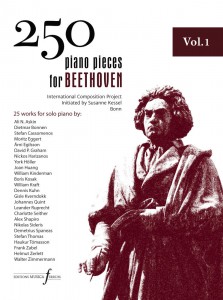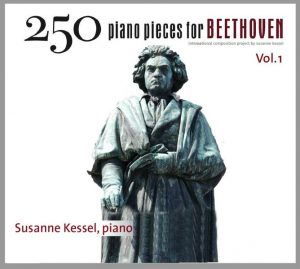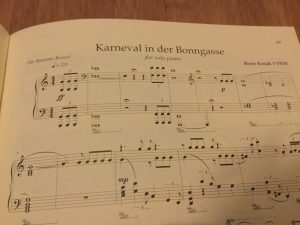Boris Kosak (BY/DE) – Karneval in der Bonngasse
Boris Kosak über „Karneval in der Bonngasse“
“Boris Kosak’s Karneval in der Bonngasse is a homage to Beethoven, where more than ten famous Cologne Carnival’s songs are disguised in his style. It evokes the impression that the great master himself would secretly try out them at the piano, melting them with his own music. Astonishingly many melodic similarities testify the true origins of Beethoven’s music, who in his younger years in Bonn, living in the Bonngasse, also used to write music for Carnival performances and participated in them. Stylistic boundaries in this witty piece are quite blurred but still all through the composition the personal style of Boris Kosak is clearly recognizable. Cologne Carnival is one of the most important topics in his music, several compositions are dedicated to it, like the piano concerto Il carnevale di Colonia, the violin concerto Concerto in stile coloniale, or the concerto for orchestra Tusch.”
Notenedition und CD Vol. 1 – hier erhältlich: SHOP
Piano piece „Karneval in der Bonngasse“ – Aufführungen:
18. Januar 2015 – Uraufführung – Haus der Springmaus, Bonn – Susanne Kessel, Klavier
Boris Kosak (*1970)
Boris Kosak was born in Byelorussia and grew up in Ukraine, at the Black Sea coast. He learned to play the piano at the age of 6, later receiving lessons in guitar, violin and accordion. Firstly Kosak studied with Valentin Bibik at the Kharkiv Institute of the Arts (Ukraine). After graduating with honours in composition and musicology, he moved to Cologne (Germany) to study composition with York Höller and electronic composition with Ulrich Humpert at the Kölner Musikhochschule. He simultaneously studied English and French philology at the local university. In Cologne, Boris Kosak occupied himself intensively with different styles, eras, genres and art forms. He painted pictures, made short movies, performed as a salsa dancer, wrote fairy tales, and learned to program software. Simultaneously, he discovered the Indian raga, the Russian liturgy, the Cuban rumba and salsa, hip-hop and Brazilian samba. He also played keyboard in a Brazilian samba band, wrote music for hip hop bands, radio plays, and produced meditation music. All these different influences resulted in new very personal style. Some of the latest works of Boris Kosak are inspired by spiritual-mystical connections, among them the vocal suite Life cycle (with texts written himself), the symphonic poem Black Forest, and the cello concerto BarCellona concerto. Website Boris Kosak




